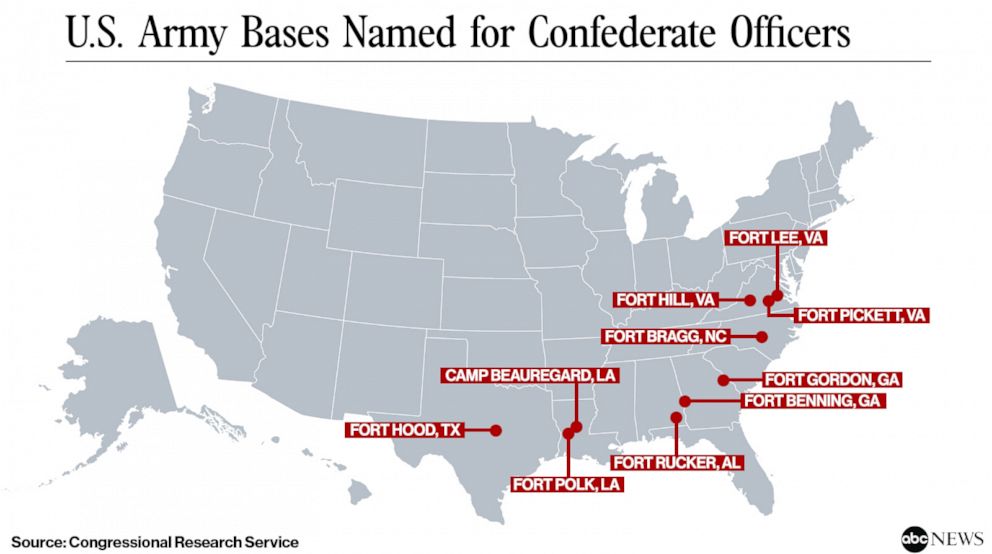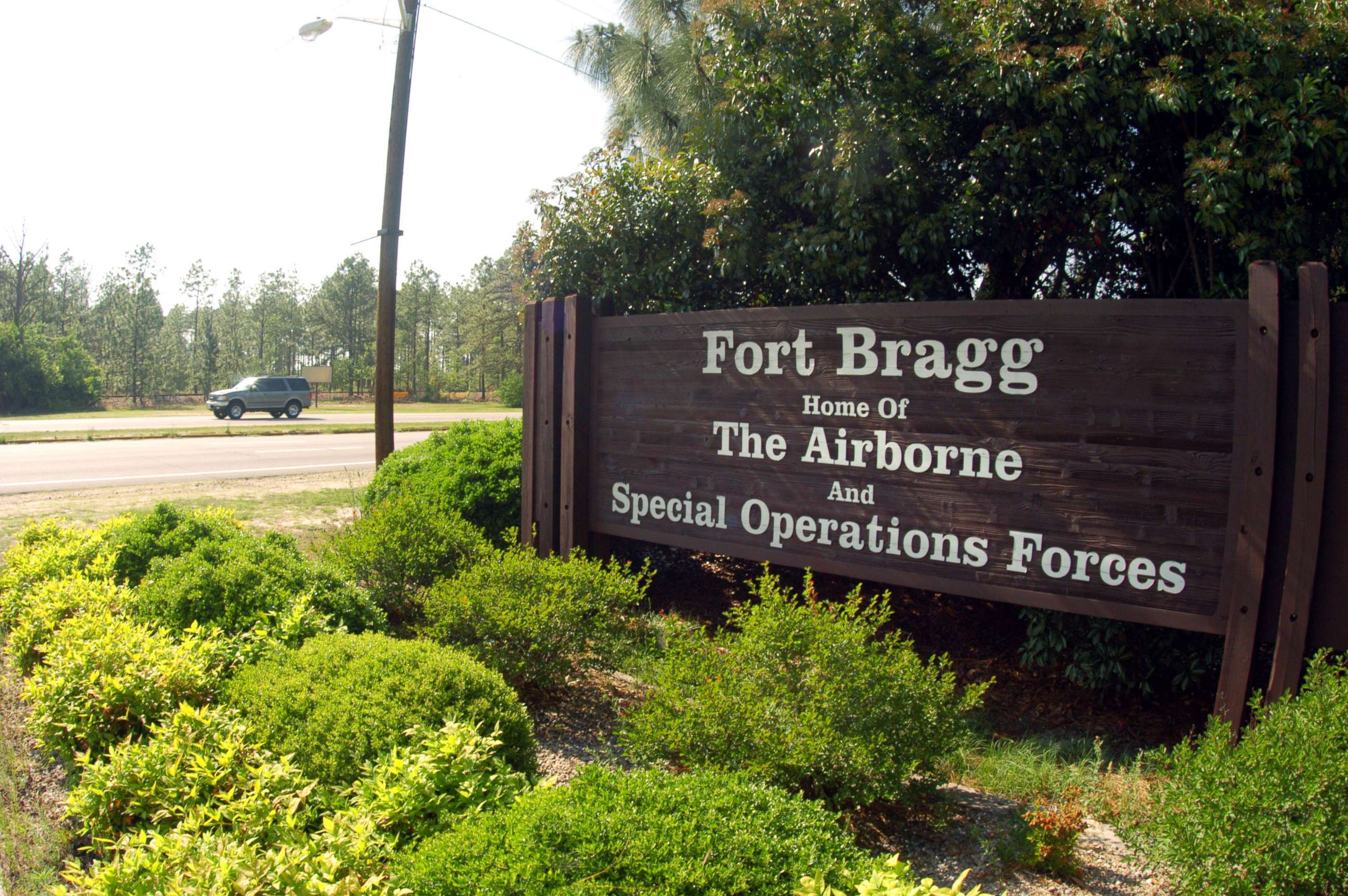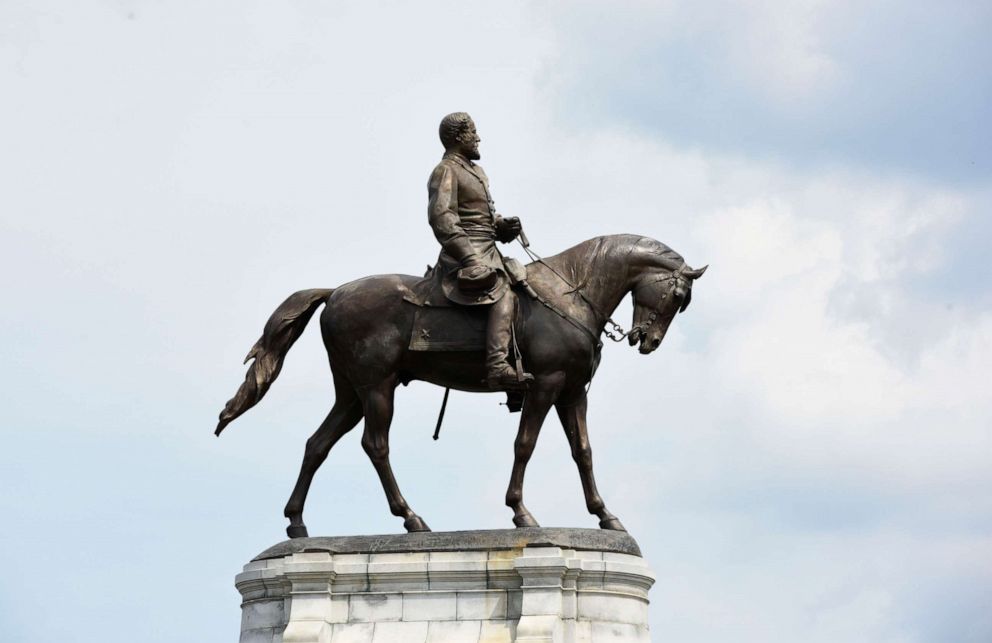The 10 major Army bases named for Confederate generals
The call to rename the bases has resumed amid protests.
Amid protests and unrest over the killing of George Floyd, debate has continued over monuments to Confederate officers, as well as buildings and other landmarks named after them.
On Monday, the U.S. Army said it is "open to a bi-partisan discussion" on renaming bases currently named after Confederate military leaders. While President Donald Trump shot down the idea Wednesday, the Senate Armed Services Committee approved an amendment to the 2021 Defense Authorization Bill which would require the Defense Department to change the names within three years.
Here is a look at the 10 major army bases that are still named after Confederate military leaders.

Camp Beauregard, Louisiana Named after Pierre Gustave Toutant Beauregard in 1917, Camp Beauregard is now the primary training platform for the Louisiana National Guard. Beauregard commanded the forces that bombarded Fort Sumter and was also part of the Confederate defenses of Richmond and Charleston. After the war, he was a railroad director, adjutant general and manger of the Louisiana lottery.
Fort Benning, Georgia Founded near the end of World War I in 1918, Fort Benning now houses the Maneuver Center of Excellence, the Infantry School and the Armor School. It is named after Gen. Henry L. Benning. A strong defender of slavery and a vocal proponent of succession, he fought at Antietam and Gettysburg. Before the Civil War, Benning was an elected justice on the Georgia Supreme Court.
Fort Bragg, North Carolina Now one of the largest military complexes in the world, Fort. Bragg was named after Gen. Braxton Bragg in 1918. Bragg was a Mexican American war veteran who commanded the Confederate Army of Tennessee and was a military adviser to Jefferson Davis.

Fort Gordon, Georgia Fort Gordon began as a training site during World War II and is now the U.S. Army Cyber Center of Excellence. Its namesake, Confederate Lt. Gen. John Brown Gordon fought many major Civil War battles, including Gettysburg. After the war, he served two terms in the U.S. Senate and one term as governor of Georgia. According to the National Governor's Association, he was suspected of being the leader of the Ku Klux Klan in Georgia.
Fort Hill, Virginia Named after Confederate Lt. Gen. Ambrose Powell Hill, Fort A.P. Hill was established as an Army training facility in 1941. Hill was a valued lieutenant of Robert E. Lee and assisted the leader of the confederate army in almost every major battle.
Fort Hood, Texas Fort Hood began as a tank destroyer tactical and firing center at the beginning of World War II. It is named after Maj. Gen. John Bell Hood, who led the confederate defense of Atlanta during William T Sherman's siege.

Fort Lee, Virginia Fort Lee was named after confederate general Robert E. Lee in 1917. Arguably the most well-known confederate military leader, Lee was born in Virginia and commanded the Confederate Army during the Civil War. Today, about 70,000 troops train at Fort Lee each year.
Fort Pickett, Virginia Fort Pickett was named after Confederate Maj. Gen. George E. Pickett in 1942. Pickett graduated last in his class at West Point and went on to lead troops in a charge at Gettysburg during which over half of his command was killed, wounded or captured. Today Fort Pickett is operated by the Virginia National Guard.
Fort Polk, Louisiana Fort Polk began as a training site during World War II and was named after confederate Lt. Gen. Leonidas Polk. Polk was an Episcopal bishop and founded the University of the South. He died during the battle of Pine Mountain in 1865.
Fort Rucker, Alabama Fort Rucker opened in 1942 and was named after confederate Col. Edmund Rucker, who was later given the honorary title of general. He became an industrial leader after the Civil War. Fort Rucker houses the U.S. Army Aviation Center of Excellence.




